Blockchain-Coordinated AI Swarm Intelligence and Collective Problem-Solving
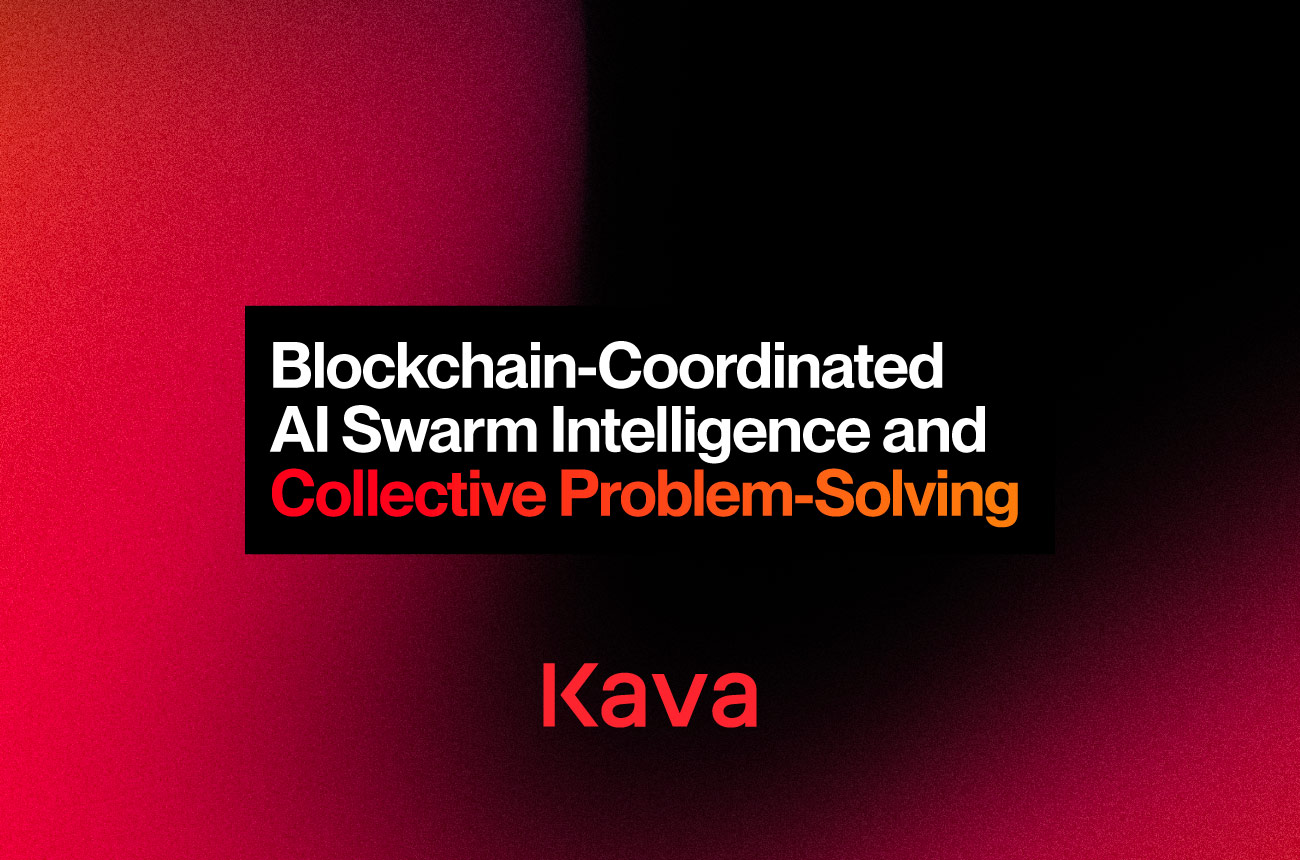
We live in an amazing world where some of the most incredible coordination doesn’t come from supercomputers or top-down planning, but from nature itself. Consider the tiny ant. Even without a commander, thousands of ants can coordinate seamlessly to build colonies, forage for food, and respond to threats, all through a simple but powerful system of decentralized decision-making. These kinds of collective behaviors, seen in swarming birds, schooling fish, and even human crowds, reveal a truth that's often overlooked: complexity doesn't always need a central controller. Intelligence can emerge from the bottom up.
To date, we have explored how Decentralized ID, Privacy Protocols, and Cross-chain Interoperability form the foundation of a new digital architecture built on transparency and trust. Let’s introduce a bold new concept: blockchain-coordinated AI swarms. Like biological swarms that act through simple local rules, these AI agents can coordinate at digital speed and global scale. When powered by blockchain, they evolve from individual systems into a collective intelligence capable of tackling problems no single machine, or human, could solve alone.
We’ll explore how this emerging field is already reshaping industries from logistics to scientific research, includingthe technological hurdles involved in getting millions of independent agents to work together without causing chaos or collapse. We’ll finish by looking ahead to a future where AI and blockchain fuse into something profoundly more powerful than either technology alone, a potential planetary-scale intelligence that just might help us solve some of the world’s biggest challenges.
What is Swarm Intelligence?
Swarm intelligence refers to the collective behavior that emerges from groups of simple agents interacting with one another and their environment. Individually, these agents may not be particularly powerful, but together, through local communication and feedback loops, they can solve complex problems with surprising efficiency. Whether in natural ecosystems or digital systems, complex coordination can emerge when individual actors follow simple rules and interact in real time.
In the field of artificial intelligence, this concept is now getting modeled in the form of autonomous agents, which are self-directed AIs programmed to pursue goals, respond to changing conditions, and adapt their behavior based on local information. When these agents are designed to cooperate, the result is an artificial swarm: a system where intelligence doesn’t reside in one place, but emerges from the coordination of many sources.
Blockchain technology serves as the ideal foundation for coordinating this kind of swarm intelligence at scale. With its decentralized ledger and consensus mechanisms, blockchain provides the trust, synchronization, and communication infrastructure that allows AI agents to act independently while still contributing to a shared goal. Rather than relying on any centralized system to orchestrate behavior, the blockchain ensures that all agents are aligned, validated, and accountable in real time.
This synergy between AI and blockchain opens the door to powerful applications across multiple sectors. In logistics, AI swarms can optimize supply chains dynamically. In scientific research, they can collaboratively simulate complex systems or analyze massive datasets. In planning and finance, they offer new methods for modeling markets, managing resources, and making decisions based on collective intelligence.
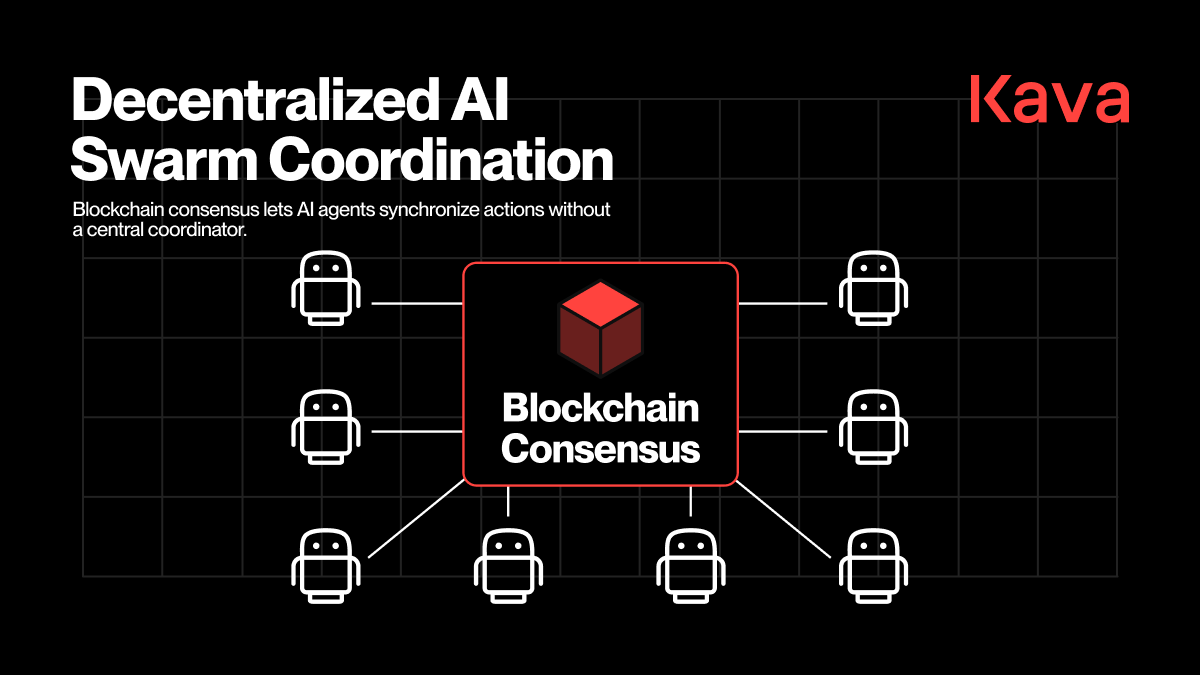
Blockchain: The Backbone of Coordinated AI
For AI agents to operate in a swarm, they need a shared system to synchronize, verify, and trust each other without relying on a central coordinator. Blockchain provides exactly that: a decentralized, tamper-proof ledger that ensures all agents have access to the same data and follow the same rules.
Through consensus mechanisms such as proof-of-stake or delegated proof-of-stake, agents can collectively agree on updates to the system. This eliminates the need for any single authority and ensures reliable coordination across large networks. Smart contracts enhance this process by automating interactions. Whether agents are exchanging data, compute cycles, or services, these contracts ensure that all agreements are executed fairly and transparently.
Incentive alignment is also a key component. By embedding token-based economics directly into the protocol, networks can reward agents for valuable contributions. This includes validating information, sharing resources, or participating in governance. These tokens create a self-sustaining economy that motivates cooperation and discourages malicious behavior.
With decentralized trust, automated execution, and built-in incentives, blockchain provides the essential foundation for coordinating AI swarms. It enables large networks of autonomous agents to work together securely, efficiently, and at scale.
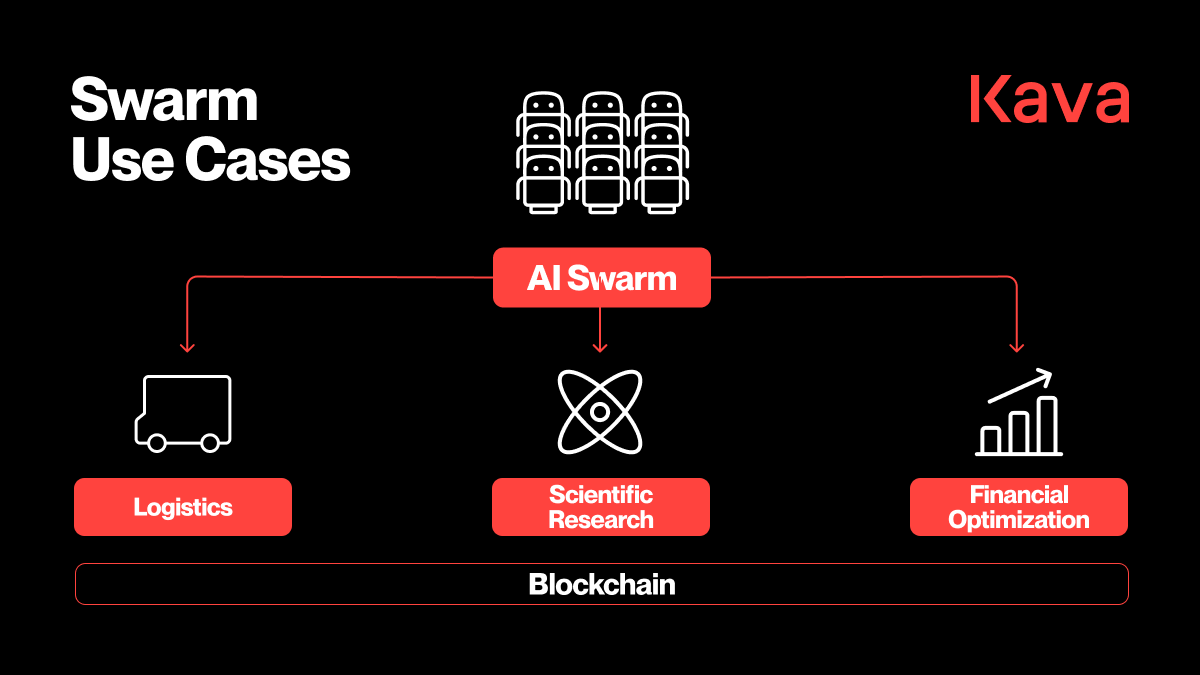
Use Cases: What Blockchain-Coordinated AI Swarms Can Do
When AI agents are empowered to collaborate through blockchain coordination, the range of potential applications expands dramatically. These systems can operate continuously, adapt to changing information, and solve problems too large or dynamic for centralized approaches. Below are just a few areas where blockchain-coordinated AI swarms are already beginning to make an impact.
Supply Chain and Logistics
Swarms of AI agents can dynamically monitor inventory, weather patterns, fuel prices, and transportation availability across global networks. Coordinated through blockchain, they can make real-time decisions about routing, storage, and schedules, reducing delays and inefficiencies. Because each agent operates independently while maintaining trust through the blockchain ledger, supply chains become more adaptive and resilient.
Scientific Research and Modeling
Large-scale research initiatives often require the collaboration of many systems to model complex interactions, such as climate behavior or protein folding. By distributing tasks across a network of AI agents, each contributing data or computing cycles, researchers can speed up simulations and reduce costs. Blockchain ensures the integrity of inputs and coordinates the workload without relying on a single institution or server.
Financial Planning and Market Optimization
In finance, blockchain-coordinated AI agents can analyze vast datasets to identify patterns, predict risk, and propose investment strategies. These agents can simulate various economic scenarios, model liquidity flows, or optimize cross-chain DeFi positions. Smart contracts ensure each analysis is verifiable, and token incentives can encourage agents to provide the most accurate or relevant outputs.
From optimizing real-world supply routes to simulating molecular structures or managing decentralized investment portfolios, AI swarms are proving their value across sectors. As coordination mechanisms improve, these use cases will only grow more powerful and precise.
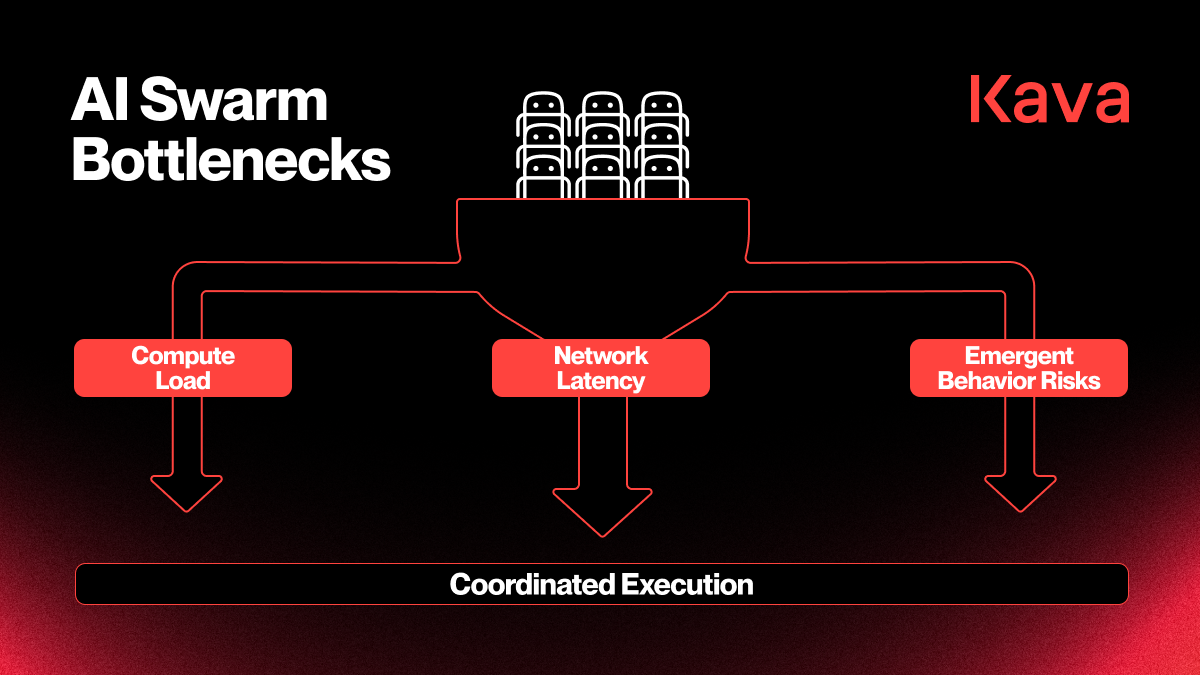
Challenges: Getting Millions of Agents to Work Together
While the potential of blockchain-coordinated AI swarms is immense, scaling presents several real-world challenges. As networks grow in size and complexity, the task of coordinating autonomous agents becomes increasingly tricky. Below are three major barriers that must be addressed before these systems can reach their full potential.
Coordination Overhead
Orchestrating thousands, or even millions, of agents in a swarm requires significant computational and communication resources. Each agent must access current data, process information, and make decisions while staying aligned with the rest of the network. Without efficient coordination, these tasks quickly create bottlenecks. The more agents involved, the more complex the message-passing becomes, and the more strain it places on compute and bandwidth.
Behavior Control
When agents act independently, there is always a risk of unintended or harmful emergent behaviors. In biological swarms, this might mean a sudden collapse or chaotic dispersal. In digital systems, it could result in resource misuse, feedback loops, or exploitation of incentive systems. Designing safe boundaries and predictable behavior models is essential, especially when agents interact with financial systems or sensitive infrastructure.
Scalability Limits
Current blockchain infrastructure is not yet optimized for the volume and frequency of interactions required by large-scale AI swarms. Even the most advanced networks face throughput limitations that make it difficult for millions of agents to operate and communicate in real time. A single coordinated swarm could easily involve billions of micro-decisions per day, far outpacing what most chains can currently support.
These challenges are not insurmountable, but they do require thoughtful design, advanced infrastructure, and ongoing refinement. Until then, the vision of globally coordinated AI swarms will remain out of reach.
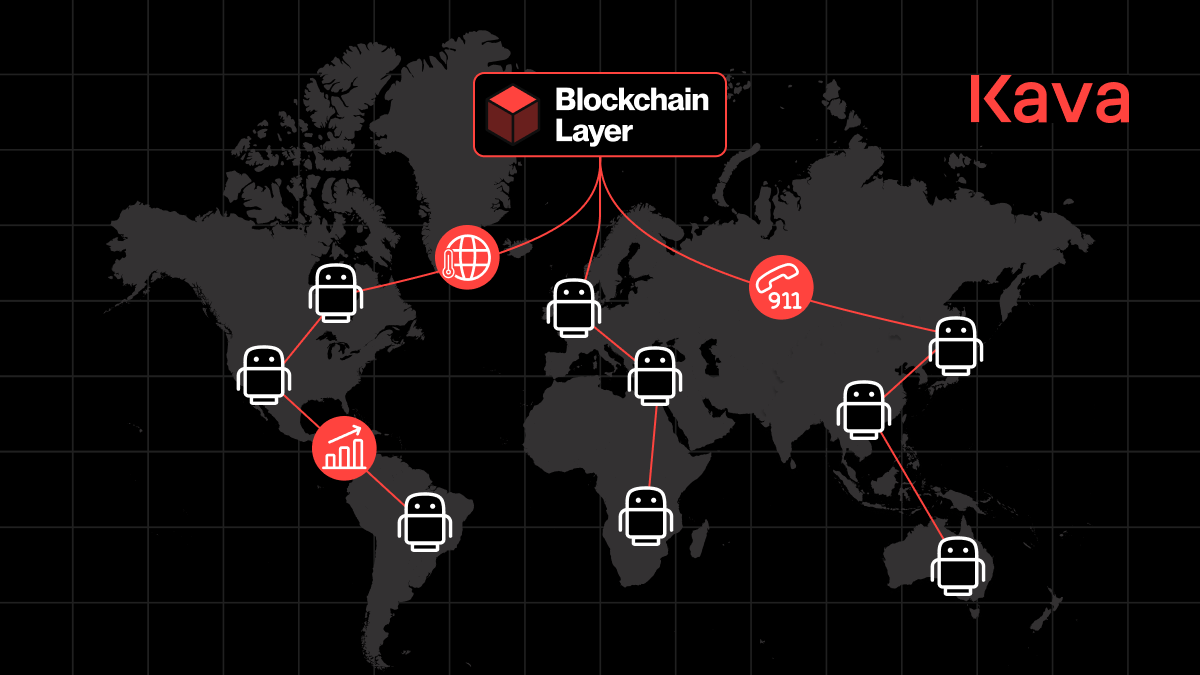
Towards A Global Collective Intelligence
Imagine a world where millions of autonomous AI agents collaborate seamlessly across industries, borders, and infrastructures to solve humanity’s most vexing challenges. Powered by blockchain coordination and guided by swarm intelligence, this vision of planet-scale collective intelligence is no longer confined to science fiction. It is emerging as a plausible future for global systems management.
In this future, decentralized swarms of AI agents could form the backbone of climate response networks. They would track atmospheric changes, coordinate mitigation strategies, and autonomously distribute resources where they are needed most. In the realm of global finance, agents could optimize trade flows, manage inflation responses, and balance liquidity across national economies in real time. During natural disasters, swarms could analyze incoming data, reroute supplies, deploy rescue resources, and communicate status updates, all within seconds of the event.
At the heart of this vision lies a shift from centralized control to distributed intelligence. Blockchain ensures that agents can operate transparently and securely, while AI allows them to adapt, learn, and collaborate. Together, they unlock a new form of crowdsourced analytics that moves at machine speed, processes vast data sets in parallel, and makes decisions with precision and agility.
This is more than an upgrade to existing infrastructure. It represents a reimagining of how intelligence, trust, and coordination can be scaled across an interconnected world. The building blocks are already here; what remains is the will to assemble them.
Coordinated Future
The convergence of AI and blockchain has made the remarkable possible: decentralized machine coordination at global scale. AI agents no longer need to operate in isolation. Utilizing blockchain infrastructure, they can share information, align incentives, and make collective decisions with trust and precision.
We are entering an era where machines do not just think, they think together. We’re moving away from centralized models of control and toward dynamic, distributed networks that are resilient, adaptable, and transparent.
The future isn’t centralized. It’s coordinated. And it’s already beginning to unfold.
